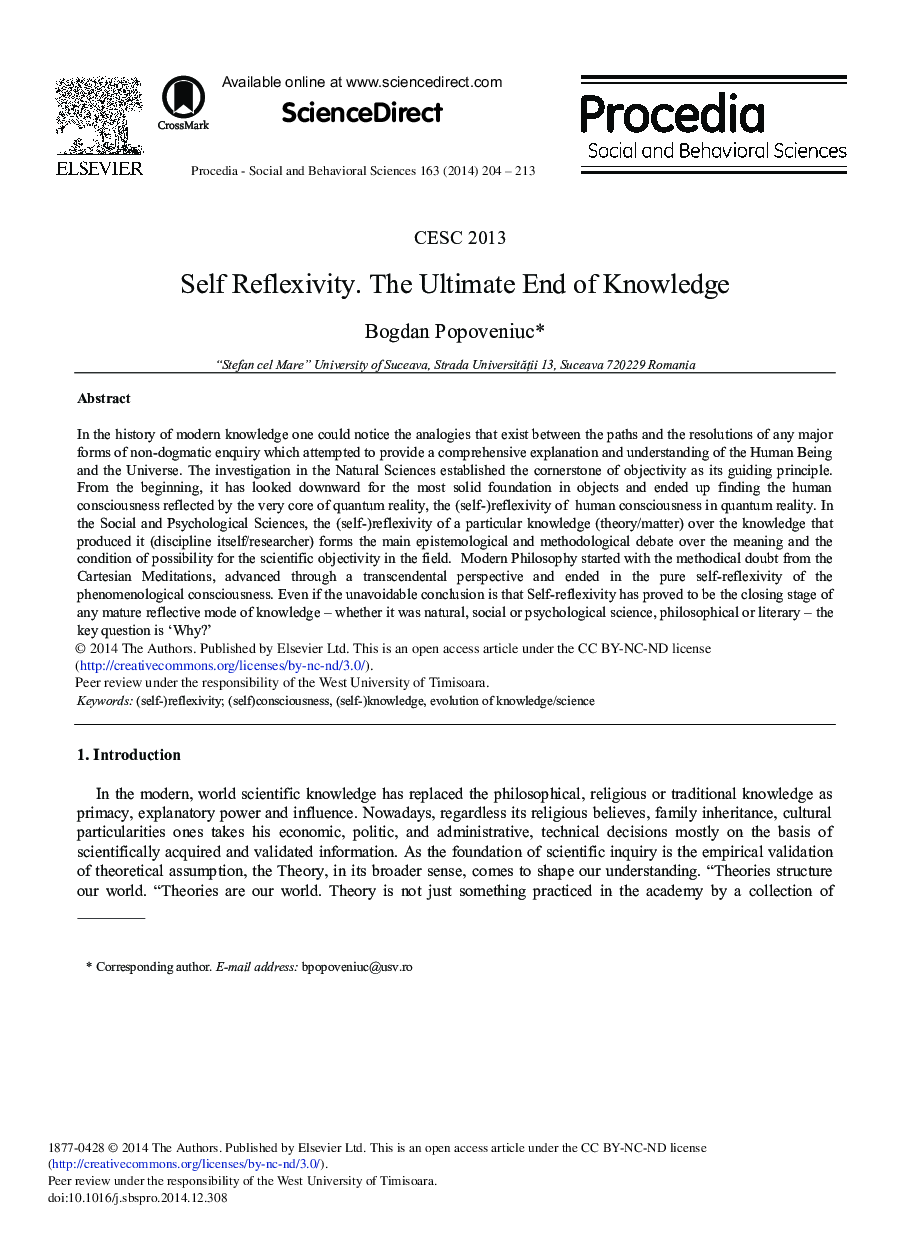| Article ID | Journal | Published Year | Pages | File Type |
|---|---|---|---|---|
| 1112482 | Procedia - Social and Behavioral Sciences | 2014 | 10 Pages |
In the history of modern knowledge one could notice the analogies that exist between the paths and the resolutions of any major forms of non-dogmatic enquiry which attempted to provide a comprehensive explanation and understanding of the Human Being and the Universe. The investigation in the Natural Sciences established the cornerstone of objectivity as its guiding principle. From the beginning, it has looked downward for the most solid foundation in objects and ended up finding the human consciousness reflected by the very core of quantum reality, the (self-)reflexivity of human consciousness in quantum reality. In the Social and Psychological Sciences, the (self-)reflexivity of a particular knowledge (theory/matter) over the knowledge that produced it (discipline itself/researcher) forms the main epistemological and methodological debate over the meaning and the condition of possibility for the scientific objectivity in the field. Modern Philosophy started with the methodical doubt from the Cartesian Meditations, advanced through a transcendental perspective and ended in the pure self-reflexivity of the phenomenological consciousness. Even if the unavoidable conclusion is that Self-reflexivity has proved to be the closing stage of any mature reflective mode of knowledge–whether it was natural, social or psychological science, philosophical or literary–the key question is ‘Why?’
